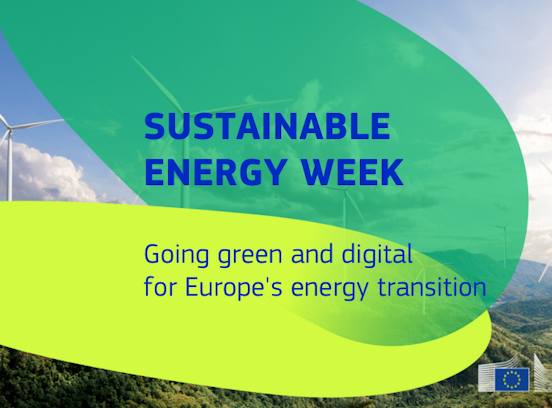BuiltHub
EU H2020 BuiltHub - Dynamic EU building stock knowledge hub
- Project duration: -
- Project status: finished
- Funding: Societal Challenge (Horizon 2020 /EU funding /Project)
- Total project budget: €2,197,088.75
- Institute: Institute for Renewable Energy
The detailed knowledge of building stock features and performances has a potential positive disruptive effect on the ability of the EC to design effective policies targeting buildings in view of the 2050 strategy and the European Green Deal. Given the lack of comprehensive and reliable data on the EU building stock, BuiltHub will develop a structured and inclusive data collection approach, as well as an easy to access & use datahub, in the shape of a structured web-based platform (IT infrastructure, analytics and user-friendly dashboard), which will be fed into thanks to a benefits-based engagement strategy targeted to data and metadata providers, as well as simple users. The mentioned benefits-based engagement strategy will be implemented by developing added value information services tailored to lead-users of the platform and other main beneficiaries (end-users). The main premise behind the BuiltHub community building proposal is that data owners will be willing to feed-in data/information to the BuiltHub platform, in exchange for the added value information/knowledge that will be put out by the platform through its operation. In addition, “multipliers” will disseminate the BuiltHub achievements for enlarging the related community. The BuiltHub
consortium will also develop different data processes and service schemes to cover possible users, based on their needs and potential use of data & analytics, as well as the benefits they could enjoy from cooperating with BuiltHub.
The project aims to build upon the building stock observatory database and related analytics for making the data flow easier, resilient and safe. However, the BuiltHub consortium is also ready for a development approach which stands on its own, as a back-up plan. It also aims to work in close collaboration with mirror and sister projects and in particular B4E-6 MATRYCS by sharing data collection approach and a standard definition of each elements at different level (country to single building).
The EU building stock progress toward decarbonization is very slow with an annual amount of deep renovations in the EU28 only around 0.2%. The detailed knowledge of building stock features and performances has a potential positive disruptive effect on the ability of the EC, MSs and ACs to design effective policies targeting buildings in view of the 2050 goals and the European Green Deal. Stated the lack of comprehensive and reliable data on the EU building stock, we will develop a structured and inclusive data collection, as well as easy to access & use datahub, in the shape of a structured web-based platform (IT infrastructure, analytics and user-friendly dashboard). The overall aim of the BuiltHub project is to define the roadmap and vision for a durable dataflow enabling to characterise the EU building stock. The above-mentioned platform will ensure such a long-lasting data flow through the engagement of the stakeholders by providing knowledge and related services. The datahub will be fed into thanks to such benefits based
engagement strategy targeted to data and metadata providers. Data are related to building performance and functionality, while metadata refers to building features and contexts. The former can be provided e.g. by facility manager and utilities, the latter e.g. by local authorities and citizens. The stakeholders’ framework that we are going to establish will enable automatic and semi-automatic connections to smart meters and existing databases, as well as “manual” collection of datasets coming from industry associations, research organizations, market players and policy makers.
Recommendations and practical approach can be directly usable for specific EU policy and possible specific
regulation/rules, promoting data collection at member state and local level, while involving the whole community of data collection practitioners.
We will develop the aforementioned tailored services for Lead-Users of the platform and the other main beneficiaries (End-Users and Multipliers). Lead-Users will directly use the BuiltHub results as available in the web-based platform, provide data and use knowledge, while End-Users will be engaged by the BuiltHub consortium to exploit the user-friendly platform in their activities, eventually providing data in return, to also continuously improve the platform usefulness and effectiveness. Users may also possibly pay fees for advanced services. Finally, Multipliers will disseminate the BuiltHub achievements, enlarging the related engaged community and boosting the building stock transformation. We have already identified an initial set of beneficiary stakeholders, while a more comprehensive mapping will be detailed within the project timeframe:
• Lead-Users: researchers, facility managers, real estate developers, utilities/aggregators
• End-Users: policy makers, designers, national and local authorities (e.g. urban planning departments), citizens
• Multipliers: stakeholders associations, media, EC/EASME
BuiltHub will deliver specific actions: (i) to reach each group and to create an engaged and motivated community by offering targeted services in return for their effort in providing data, as well as (ii) to give the deserved value to the provided services (coming from data post-processing and analytics). We will ensure a long-lasting data flow, working on private and public benefits in providing digital data to the BuiltHub platform. Such benefits will be available in the form of knowledge and related services accessible through the platform for e.g. benchmarking, supporting investment, and urban planning towards full decarbonization. A specific value proposition and related business case, and a robust marketing strategy will be developed for sustainability and durability of the engaged BuiltHub community and of the platform, with this becoming their reference data repository and tool box. The BuiltHub platform will offer differentiated service schemes
to face different possible users’ needs and potential use of data & analytics. The users’ benefits they can enjoy from cooperating with BuiltHub will be properly disseminated and communicated with tailored initiatives, and services access properly configured.
The BuiltHub project aims to build upon the Building Stock Observatory (BSO) database and related analytics, to simplify, strengthen and safeguard the data flow. BuiltHub will facilitate data collection for the current and next contractors, in particular referring to “how to collect data”, “which are the meaningful data (and metadata) to be collected”, “what should the data be used for”. While the direct connection with BSO is in principle the ideal case scenario, it includes two prerequisites: a) the BSO infrastructure is already solid and functionable and b) EASME supports this approach and enables timely access to the BSO backend, functionalities, data and metadata. Notwithstanding, if these conditions are not met, the BuiltHub consortium is also ready for a development approach which stands on its own, as a back-up plan, focusing on supporting the development of durable dataflow.
The BuiltHub consortium has a solid relevant background including H2020 Hotmaps (coordinated by TU Wien), H2020 ExcEED (coordinated by Eurac) and iBRoad projects (coordinated by SYMPRAXIS), the BuildUP service contract (currently managed by EVERIS), 1st BSO EC service contract coordinate by BPIE, representing a very good starting point for developing the BuiltHub concept and implementing related activities.
Filippi Oberegger U, Munoz Alcaraz A, Alcantara Solis A, Garcia Martinez JM, Pezzutto S, Doran E (2023)
Internet
More information: https://build-up.ec.europa.eu/en/resources-and-tools/article ...
Zandonella Callegher C, Grazieschi G, Wilczynski E, Oberegger Filippi U, Pezzutto S (2023)
MDPI AG
Journal article
Sustainability
More information: http://dx.doi.org/10.3390/su15118840
Stambler M, Filippi Oberegger U (2022)
Internet
More information: https://www.wartsila.com/insights/article/on-climate-change- ...
Filippi Oberegger U (2022)
Presentation/Speech
Conference: Co-creating an impactful and user-friendly platform | online | 24.3.2022 - 24.3.2022
Filippi Oberegger U (2021)
Presentation/Speech
Conference: Sustainable Places 2021 | Rome | 28.9.2021 - 1.10.2021
More information: https://www.sustainableplaces.eu/wp-content/uploads/2021/10/ ...
R2M Solution (2021)
R2M Solution
Report
More information: https://lnkd.in/e87i_Ae5
Gevorgian A, Pezzutto S, Zambotti S, Croce S, Filippi Oberegger U, Lollini R, Kranzl L, Müller A (2021)
Bolzano: Eurac Research
978-88-98857-68-5
Authored book
More information: https://builthub.eu/resource?uid=529






